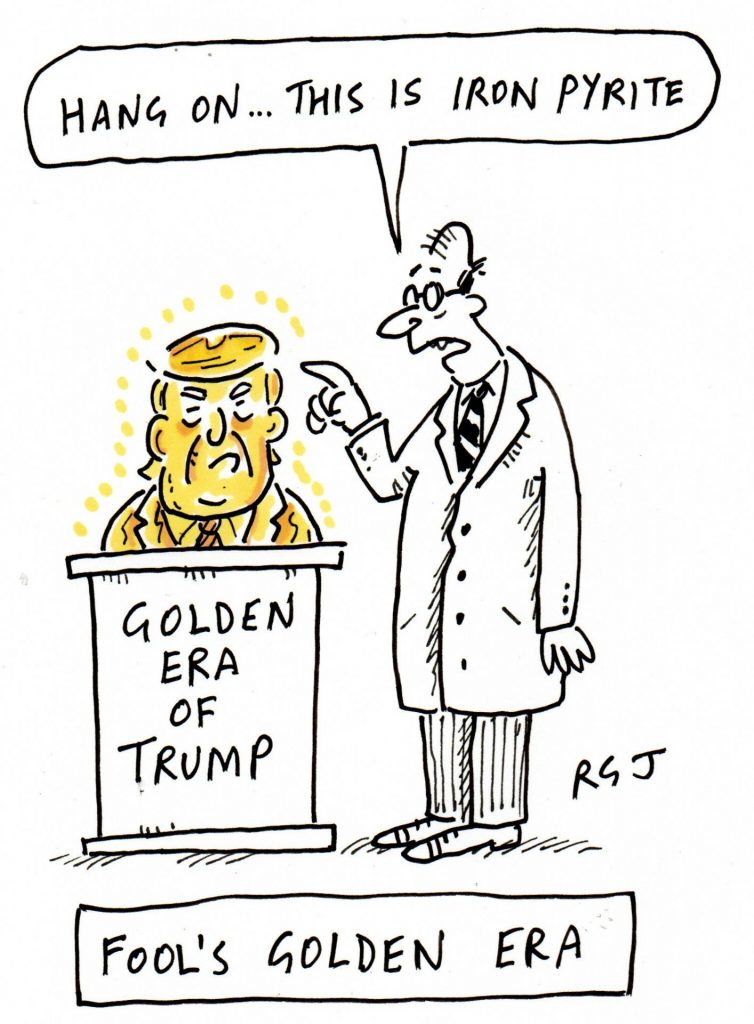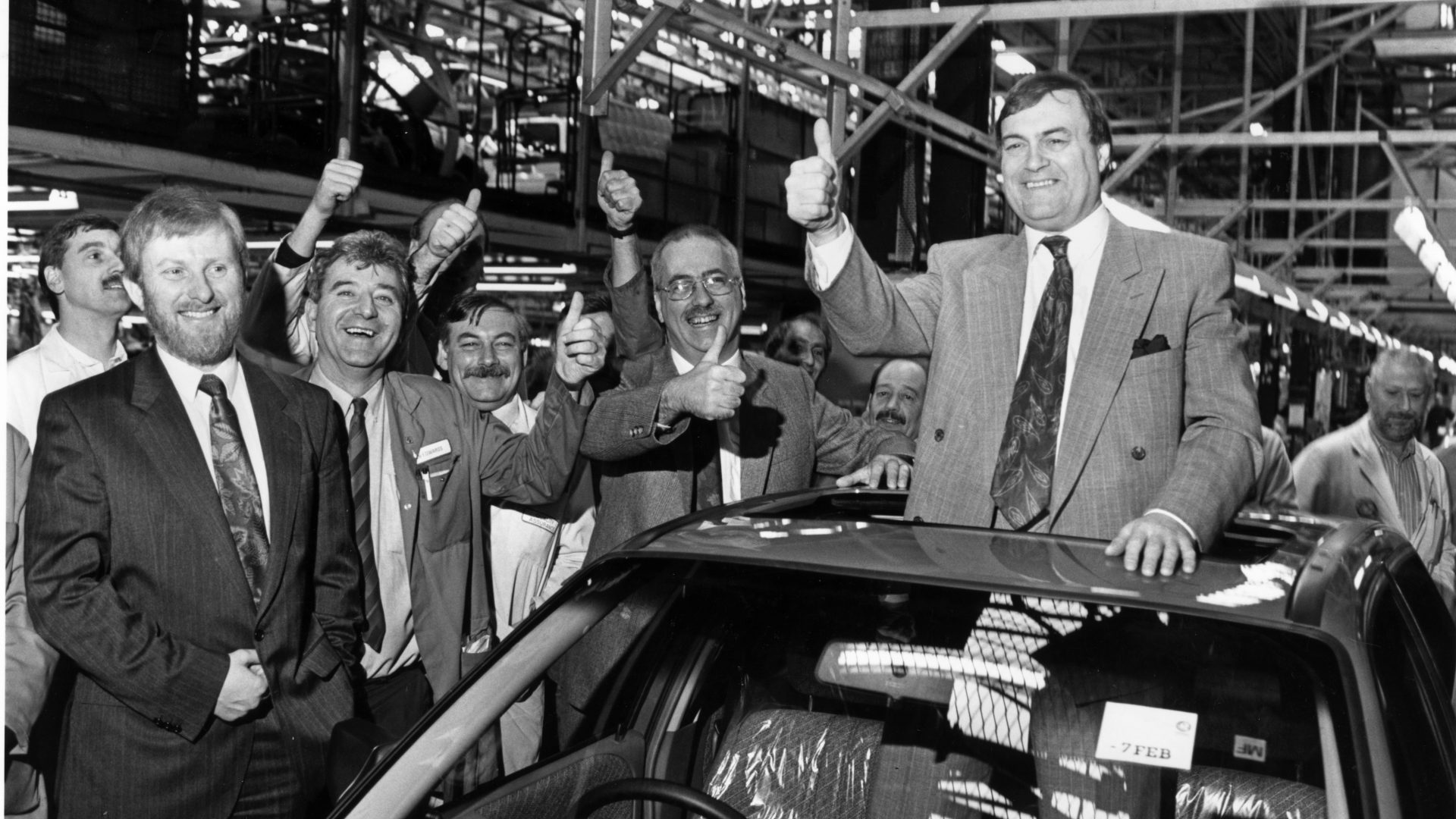Michael Heseltine’s book launch party was like a journey back in time, to my days as a political journalist, leaning against Clement Attlee’s statue in the members’ lobby in parliament, waiting for cabinet ministers to wander by.
Heseltine was a prime contact, not least because I shared his desire that he should become prime minister, as that would have meant the fall of Margaret Thatcher. He never quite made it, but did become only the second person in UK history to be appointed deputy prime minister, under the man who did replace Mrs Thatcher, John Major.
The first? A clue… I used to spend hours standing at the base of his statue. Correct. Clement Attlee, wartime deputy to Winston Churchill.
Many from the Thatcher-Major era are long gone, but Ken Baker, Ken Clarke, David Hunt, John Wakeham, Norman Fowler, Michael Portillo and others were there to hear about Heseltine’s new tome, From Acorn to Oaks. I hope I am still writing, and still having ideas, at 91. I hope my back is as straight and my voice as strong as his. (I’ve already given up on my hair being as enduring as the Tarzan locks.)
The book merits reading by ministers today, for amid the autobiographical stories of the past are ideas about how to improve government now and in the future, and get the country growing again.
As for his speech, the highlights for me were his denunciation of Brexit, and of the populists who helped to bring it about (I noticed Michael Howard wincing a little); his enduring love for Liverpool and what his work there taught him about inequality, the human spirit, and the role of the state in improving people’s lives; and his enduring love and thanks for his wife, Anne.
Hezza has many parts to his legacy, but these days, a 62-year marriage still going strong is right up there among the achievements.
The UK’s third, and longest-serving, deputy prime minister was John Prescott, whose marriage to Pauline lasted even longer – 63 years. In their eulogies at JP’s funeral, both Tony Blair and Gordon Brown paid tribute to the role Pauline played in her husband’s journey from ship waiter to DPM.
A third prime minister, Keir Starmer, did a reading from the Bible, Angela Rayner read a poem by another famous son of Hull, Philip Larkin, and the former US vice-president Al Gore sent a video paying tribute to JP’s role in securing the Kyoto climate agreement.
The love and respect for JP, who often felt patronised and disrespected by a breed he called “the beautiful people”, could not have been clearer.
Gordon told the story of a visit John made to the United States, when the immigration officer asked him if he had ever been a communist. “No, I’m a socialist, but you wouldn’t know the difference.”
Then “is there any history of lunacy in your family?” “Yes, my aunt married a GI airman.” Somehow he was allowed in.
Tony captured the complexity of John’s character, saying he “wrestled frequently with the tangle of ambition and altruism that motivates political animals,” and recalling how he once said to his loyal deputy “I wish you liked yourself as much as I like you”.
In one of the last conversations I had with John, already ill but not yet as badly hit by Alzheimer’s as he later became, he said: “When I go, all they’ll talk about is that bloody punch,” a reference to his famous left jab landing on the jaw of a mullet-haired voter during the 2001 election.
“The punch” did indeed get a couple of mentions, but he was remembered for a whole lot more besides, and my God, we could do with some politicians like JP today.
I have so many memories of JP, including plenty of arguments, lots of ups and downs, but when I was asked by a local Hull reporter to choose just one, I recalled one of the worst days of my life, when the body of weapons inspector David Kelly was found and, as I recorded in my diary, “I felt an avalanche coming my way.”
John and Pauline did not take that many holidays, but they happened to be overseas on one at the time. JP was among the first to call me, and said he was flying back from Cyprus. I said there was no need. He insisted. Partly it was because he knew it would mean crisis time for the government, and Tony Blair was en route to Asia. But also it was a very simple act of solidarity. I never forgot it.
The family asked me to play the bagpipes as the coffin was carried into the Minster. After talking it over, we decided I should play the Welsh national anthem. After four decades as a Hull MP, he was widely thought to be from there. In fact he was born in Wales, and I was honoured to play him in.
And PS, while on music, a shoutout to the choir, Choral Hull, made up of 70 children from local primary schools. They sang some really difficult and complicated pieces of music beautifully, and underlined just how important it is for all kids, not just those in private schools, to have access to music and the arts.
As the sociopathic Narcissist-in-Chief was burbling aviation inanities and seeking to politicise without facts or empathy a deadly air crash, into my inbox popped an email from associate professor David Lawrence, an HIV doctor based at the London School of Hygiene and Tropical Medicine.

It was an analysis by The Foundation for AIDS Research of the impact of Trump’s pause of the President’s Emergency Plan for AIDS relief (Pepfar). This was one of George W Bush’s finest achievements, with 20 million people covered by it, and one of the least noticed of the flurry of Trumpian Executive Orders.
Dr Lawrence had been inundated with stories of Pepfar staff told to stop giving out HIV drugs immediately. “To give one example of the damage this will do,” he wrote, “if pregnant women cannot take HIV medication they are likely to pass on HIV to their baby.
“Women on effective treatment are advised by the WHO to breastfeed their babies, but if that treatment is stopped they will either have to transition to formula or, given the high cost and limited capacity for this, breastfeed babies who may acquire HIV. The policy suggests that in 90 days 136,000 babies may acquire HIV. This is just one of the many predicted impacts of this order.”
He listed the number of people a day at risk of losing, overnight, the drugs they need daily in some of the most affected countries. Mozambique: 25,932, of whom 1,257 are children; Kenya: 17,229 total, 841 children; Tanzania: 15,115, 601 children; Uganda: 14,015, 717 children; Nigeria: 11,077, 437 children; Zimbabwe: 10,325, 486 children.
Every single one of them is a human being able, thanks to a former Republican US president, to take life-saving medication for granted, but suddenly, thanks to the brutal whim of the current president, put in peril. Thankfully the secretary of state, Marco Rubio, has said supplies should continue, although it appears HIV testing and access to preventative treatment remain on hold.
Peter Mandelson may feel he has to withdraw truthful statements about Trump in order not to be rejected as UK ambassador to Washington. The rest of us have an even greater duty to keep on telling the truth about the scale of the monstrosity the American electorate has inflicted on the world.




